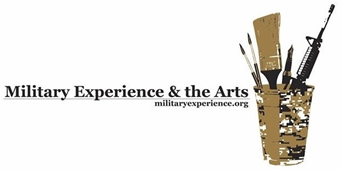Nonfiction
Ends on
Creative nonfiction incorporates tools of fiction–narrative, scene building, dialogue, character development—to describe events. MEA strives to maintain a strict genre boundary between nonfiction and fiction, so that readers will know that a story is relaying actual happenings, as near as the writer can recollect and convey, and is not based on interpretations and substantive adjustments or imagined scenes and dialogue.
Remembered events are of course fallible and very specific to the person, influenced by an individual’s past experiences, perspective on the moment, follow on events and so many other things. But there is real value in trying to convey events as they’re remembered, being true to events as the writer understands them to be. These recollections can always be rounded out or complimented by talking to others who were there and including their perspectives.
There may be at times be a need to change a name or detail to protect someone’s identity or not to violate OPSEC, but that’s a narrow band. Writers are asked to be forthright when working with editors about any alternations made.
You have a couple of options when submitting a piece to us, either of which will allow you to be considered for publication:
- If you are willing to revise your work, one of our staff will provide you with one-on-one consultation and guidance as you work through several drafts. Their goal is to help you draft a polished, publishable piece. The editors assigned to you are professional writers, educators, and published authors who have volunteered to help veterans and families learn the craft of writing. MEA’s primary mission is to help veterans and family members build their skills in creative expression, and we strongly encourage you to take us up on our offer.
- We also understand that not everyone is willing to revise their work for one reason or another, and would just like to have their piece considered for publication. We give you the option of having our editors consider your submission on the basis of simple acceptance or rejection.
***Please note the following***
- One submission per writer
- Maximum 3,500 words or less
- Submitting and/or working with an editor does not guarantee publication. Though all work will be considered, and every writer given an opportunity to learn and revise, we simply can't publish everything submitted to us. Editors reserve the right to reject pieces that are inappropriate, out of genre, not military themed, etc.
- We will not, under any circumstances, consider work that has been previously published elsewhere, including self-publication
- Each submissions period we set a submissions cap per each genre that applies to those pieces seeking editorial guidance. It will be commensurate with editorial staffing in a given submission period. This will ensure that those writers with whom we can work will receive quality mentoring. We will work with as many writers as we can, but we will not be able to work with everyone. Thank you for your understanding.
- No works associated with artificial intelligence (AI) will be considered. This includes its use in cover letters, summaries, and the like. There are no exceptions.
-Please review our copyright and privacy policy at http://militaryexperience.org/copyright-and-privacy/
-Here are some conventions of the genre to which editors will adhere: https://militaryexperience.org/meas-guide-to-short-fiction-and-nonfiction/
If you have any questions about the submissions process, please feel free to email the Editor-in-Chief at president@militaryexperience.org
